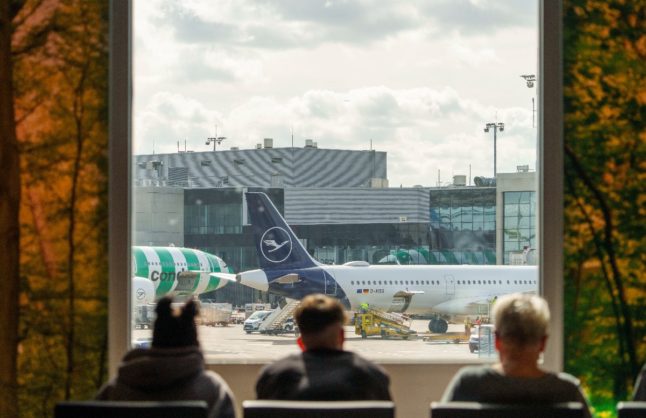From early June, Sweden has been the only EU country named as a 'risk area' by Germany, which meant people arriving in Germany from Sweden could be required to quarantine for 14 days. Now, that requirement will be abolished.
The risk area designations are made by the German Robert Koch Institute (RKI), which bases its assessment on several criteria, the key one being more than 50 new infections per 100,000 residents in the previous seven days.
But on Tuesday, the list of risk areas was updated, and Sweden was not among the 126 countries from where travellers should quarantine on arrival in Germany.
That means people can now travel between Germany and Sweden for all reasons, including for tourism or leisure, the German Embassy said in a statement on Tuesday.
Individual federal states have the option of imposing their own restrictions, but the German ambassador to Sweden told the TT newswire that states must follow the national decision to remove the Swedish quarantine.
“The same rules apply to all European countries; if the rate of infection is lower than 50 per 100,000 residents [in the last seven days] the quarantine requirement is lifted. Since the development in Sweden was positive, we could lift it. We look at this over a time period of several days and it seems to be a stable trend now,” ambassador Anna Prinz said.
It is possible to travel from Sweden to Germany by air, by boat from Trelleborg or Gothenborg, or by train if crossing through Denmark. Denmark however has its own restrictions on travel from Sweden, so tourists should make sure they have the correct documents if entering Denmark for the purpose of transit.



 Please whitelist us to continue reading.
Please whitelist us to continue reading.
Hi where to get the exact information to visit the family members in Norway by car and what are the restrictions currently.
Thanks
Vikas. Now it is 3 counties in sweden where you can travel from to norway without quarantine, so called green zones. Rest of sweden is red zones and quarantine for 10 days is needed in norway. If i for example would travel there, i must have evidence that i will be somewhere for 10 days, like a hotel booking. Here is a link. https://www.grensetjansten.com/sv/blandat/2020/04/02/information-angaende-covid-19-corona-viruset/
Use this link instead https://www.udi.no/en/about-the-corona-situation/visits-holiday-and-leisure-trips/#link-18184
You can choose english language if you want.
Everyone who enters Norway from abroad are obligated to quarantine upon arrival, except for “the green” areas in Europe. Here is an overview of which countries and regions are exempt from the quarantine obligation at the National Institute of Public Health (external website).
If you are among those who must stay in quarantine when you come to Norway, you must document that you have a permanent address during the period you have a quarantine obligation. For example, this can be a written confirmation from the person who will host you.
Persons who cannot document having a place to stay at the same address for the ten days of quarantine can be denied entry to Norway.